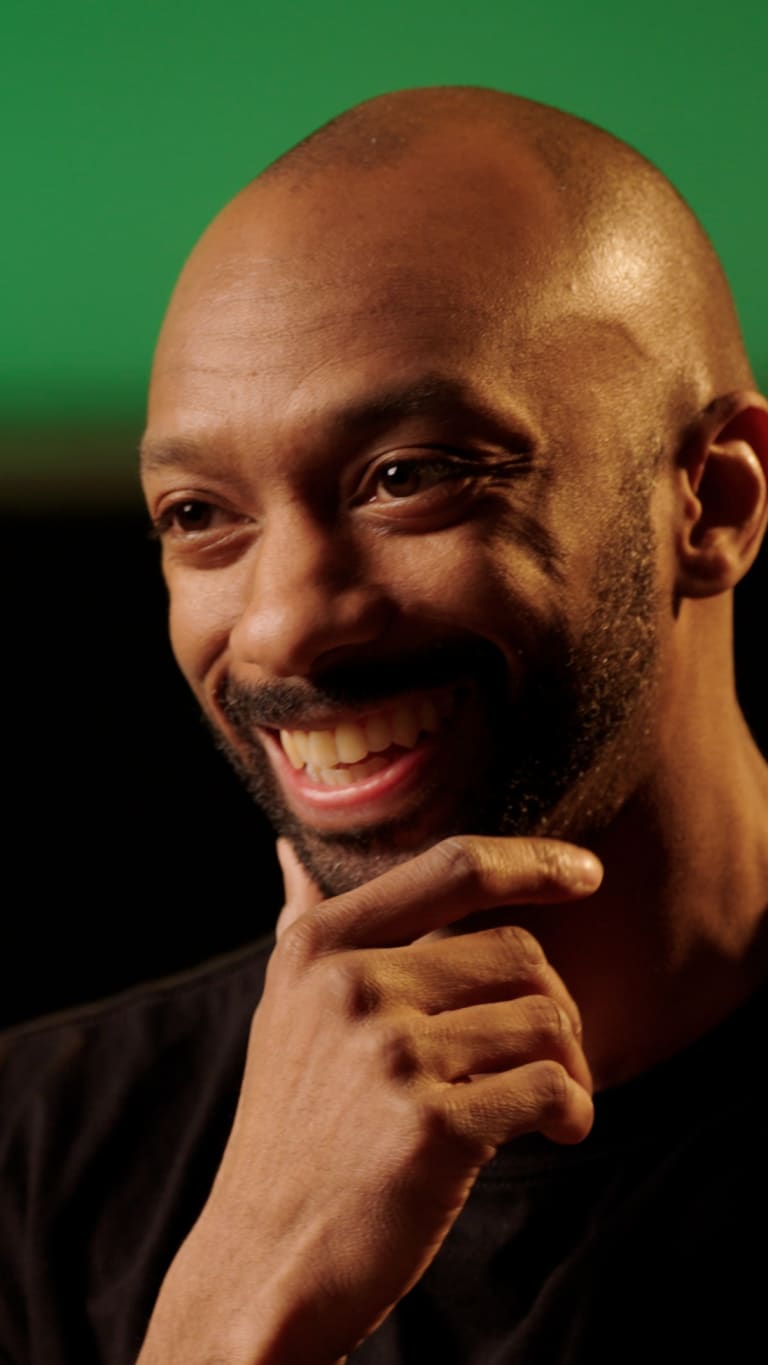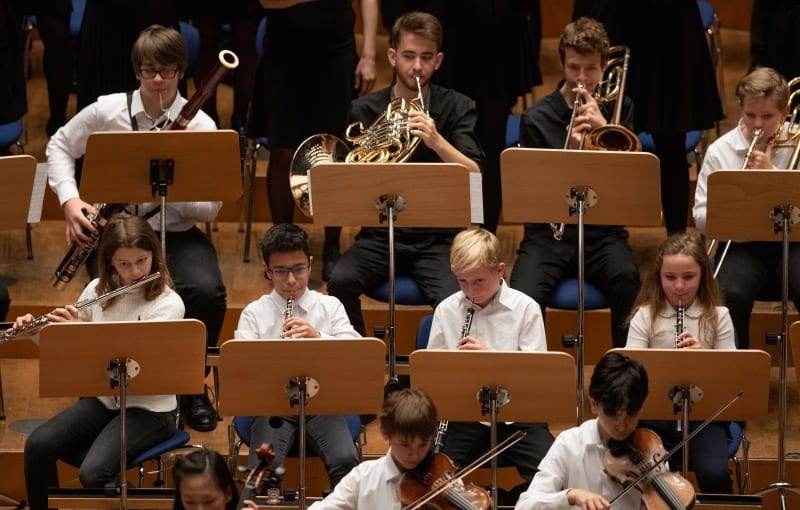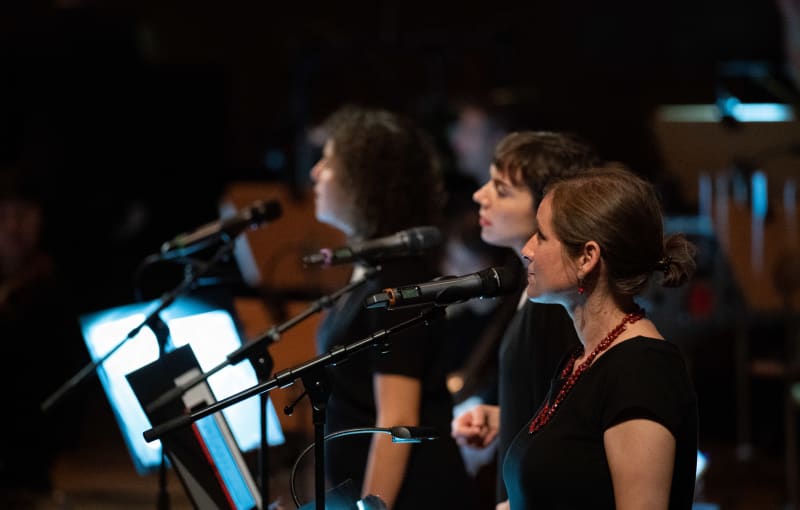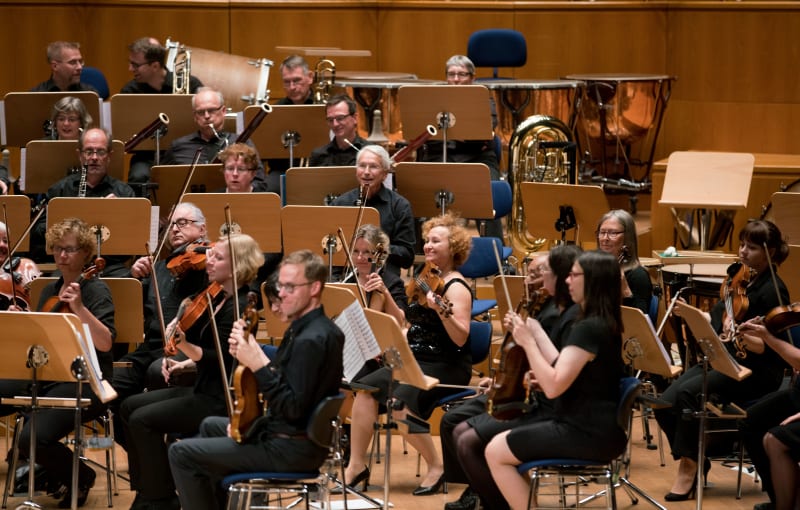
»There’s always room to innovate«
Das #Ignition-Konzert am 8. Juli widmet sich der Musik aus Video Games, und wir haben für den Abend einen ganz besonderen Stargast eingeladen: Wil Roget II, vielfach preisgekrönter Komponist von Spielen wie »Call of Duty«, »Mortal Kombat« und »Star Wars Outlaws«. Anke Demirsoy hat mit ihm ein Gespräch geführt über seine persönlichen musikalischen Vorlieben, warum Komponieren für Video Games anders funktioniert als für Filme und wie man verhindert, dass sich Gamer langweilen.
What fascinates you about this genre?
Every game project presents new challenges, both creative and technical, and there’s always room to innovate in some way. Our work stays with the players for much longer than a film too, with some story-based games being dozens of hours long – and players even spending hundreds of hours in online games. All this results in an enthusiastic industry full of musical diversity and nuance, which I’m very grateful to participate in!
How does composing for video games differ from film music?
The biggest difference is that films have fixed length, whereas we can’t predict how long a player might stay in a particular area of a video game. We don’t know how long the fight sequence might last, how long a puzzle might take to solve, or sometimes even how long a player spends in a conversation. So while a film composer can look at the big picture of a scene and write cues that gradually evolve over several minutes, game composers must write in a more granular fashion, with music being triggered and even re-mixed dynamically to respond to gameplay.
Are there certain elements or techniques that you use when composing for video games to enhance the gaming experience?
In many cases we use looping music cues that repeat forever, or dynamic music systems that can seamlessly change the mix or arrangement of a piece, and transition from one piece to another. Other times we create very short snippets of music, or even solo instruments, and the game itself assembles and sequences these segments dynamically to produce a full piece of music. Many different approaches to game music interactivity exist, but the goal is to give the illusion that the music is being custom-scored to the player’s experience.
Some gamers play half the day, or even the whole day. How do you avoid the effect of the music becoming boring?
In addition to dynamic music techniques, we can also introduce concepts like randomization of cues, variations so that players hear different music in different situations, or even having stretches of time where no music plays at all. We also keep players’ ear-fatigue in mind while writing the music, avoiding overly repetitive elements or sounds that abruptly poke out of the mix. This differentiates games from TV and film scores, where composers can have cues that grow and develop repetitively for several minutes.

In Düsseldorf, your music will be performed as part of a classical concert and played by a professional orchestra. Is this the first time or have there been events of this kind before? What do you think about this format?
Earlier this year, for the first time in my career, I’ve had the pleasure of attending a live orchestra concert performance that included my own music – first by a pickup orchestra conducted by Austin Wintory for the Game Developers Conference, and then by the San Francisco Symphony. Both concerts featured game music from a few composers, with pieces from several eras of the medium, and it was a joy to see my music performed alongside some of the greatest composers in game music history. It’s an incredible privilege to present our work directly to audiences in such a format, and I’m profoundly blessed to work with the Düsseldorf Symphony Orchestra on this #Ignition concert.
What music do you personally like to listen to? Does it include classical music? Do you sometimes go to concerts?
I have modern favorites across a ton of musical genres, from EDM to grunge and metal, art pop, funk, R&B and soul. I also still love Japanese anime scores, film scores, and classic video game scores. But 20th century classical music, as well as east European folk music, has had the most impact on my own compositions. In fact, my style of rhythm and harmony is greatly influenced by the syncopation, uneven meter and clustered harmonies characteristic of traditional Bulgarian vocal music in particular. And then as far as classical music, my favorite composers include Stravinsky, Schoenberg, Shostakovich, Hindemith, and of course, Bach and Beethoven.
How do you see the development of video game music in recent years, and what trends have you observed?
Every video game console generation brings forth new technologies and new tastes, which is why it’s such a fascinating industry! Early on the music was dictated by technical restrictions and capabilities of each game system, but eventually around the PlayStation 1 era (roughly 1995-2001), we started to get soundtracks recorded to CD and no longer restricted by playback capabilities. We could record live orchestras, bands, vocal tracks – basically anything was possible. Eventually in the PlayStation 2 and PlayStation 3 eras (2001-2013), because of expanded tech and budgets, we started to focus on »authenticity« – instead of a game composer’s synthesized interpretation of what a Hollywood orchestra might sound like, developers would record real live orchestras, often hiring the biggest names in Hollywood to compose game scores. Now in the PlayStation 4 and 5 era (2013-present), we’ve moved away from pure authenticity and on to more creative, genre-bending scores from a diverse variety of musicians. We’re in a a particularly interesting era of game music now, and I’m always excited to hear what comes next! □

Beim #Ignition-Konzert am 8. Juli 2025 tauchen wir gemeinsam ein in die Welt der Videospielmusik, hören Wil Rogets und andere Werke und sprechen mit dem Komponisten darüber, wie man Musik für Games überhaupt komponiert. Dazu gibt’s auch Highlights aus Klassik, Anime und Film, Gordon Hamilton dirigiert die Düsseldorfer Symphoniker.








